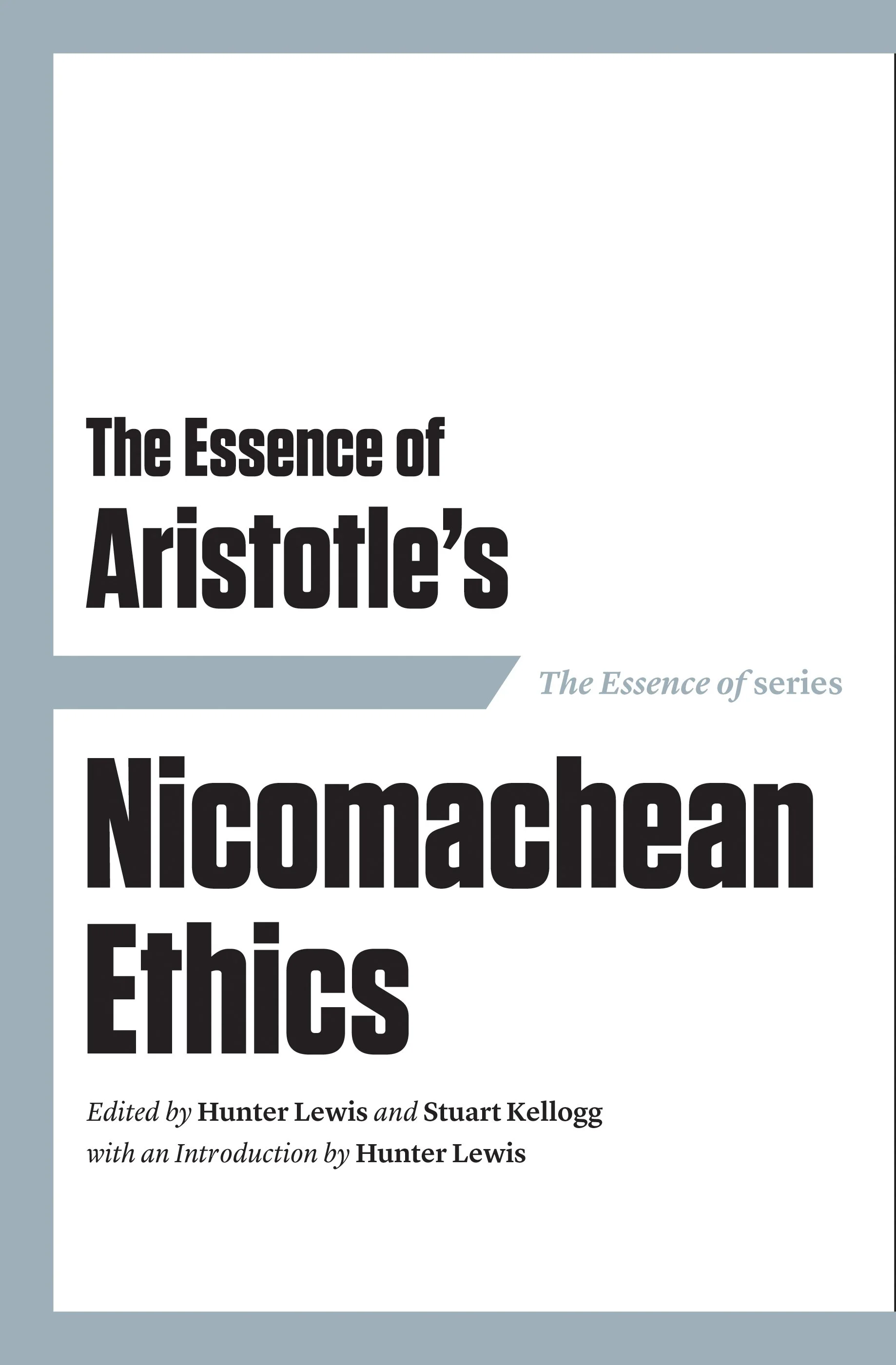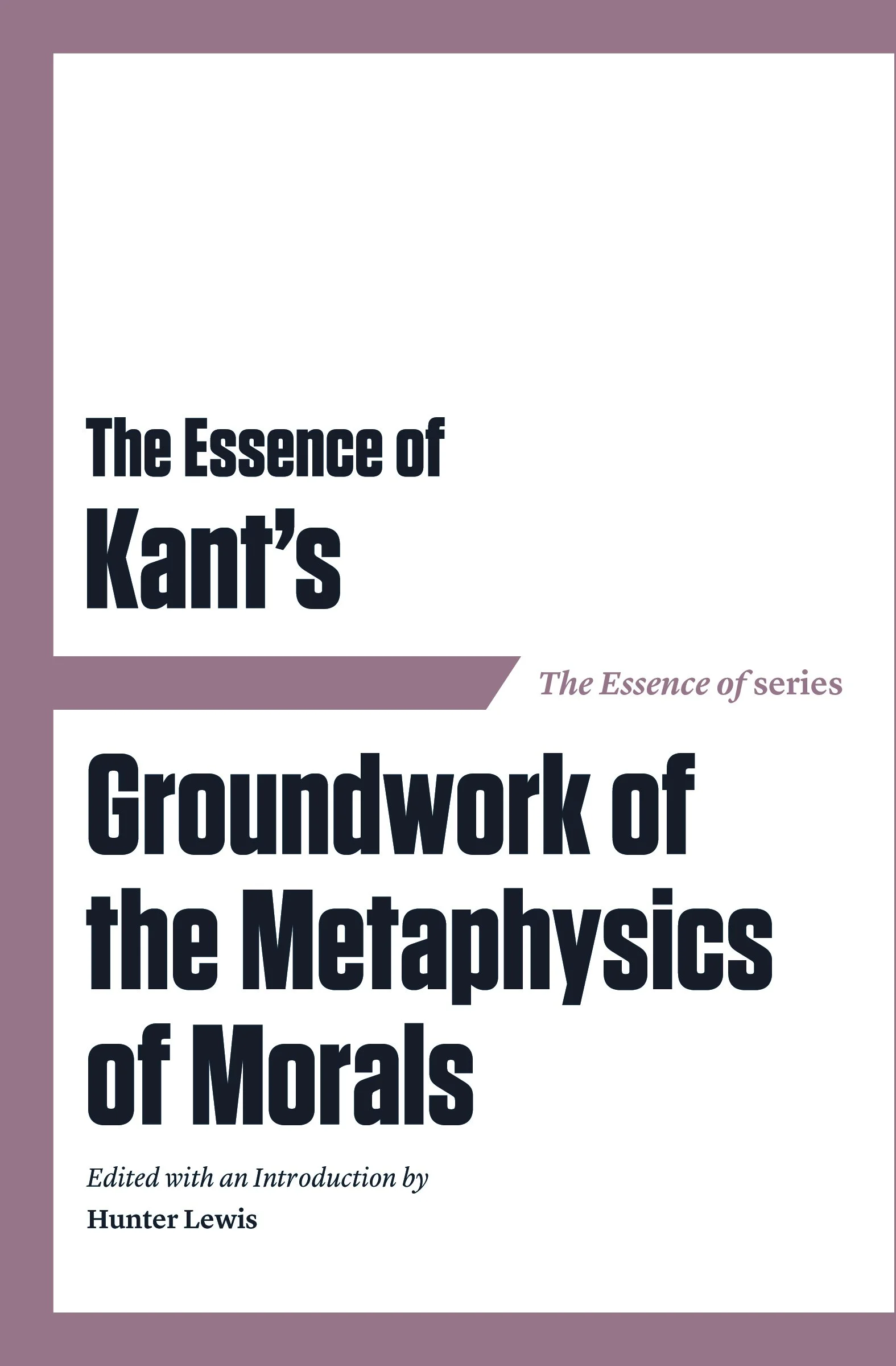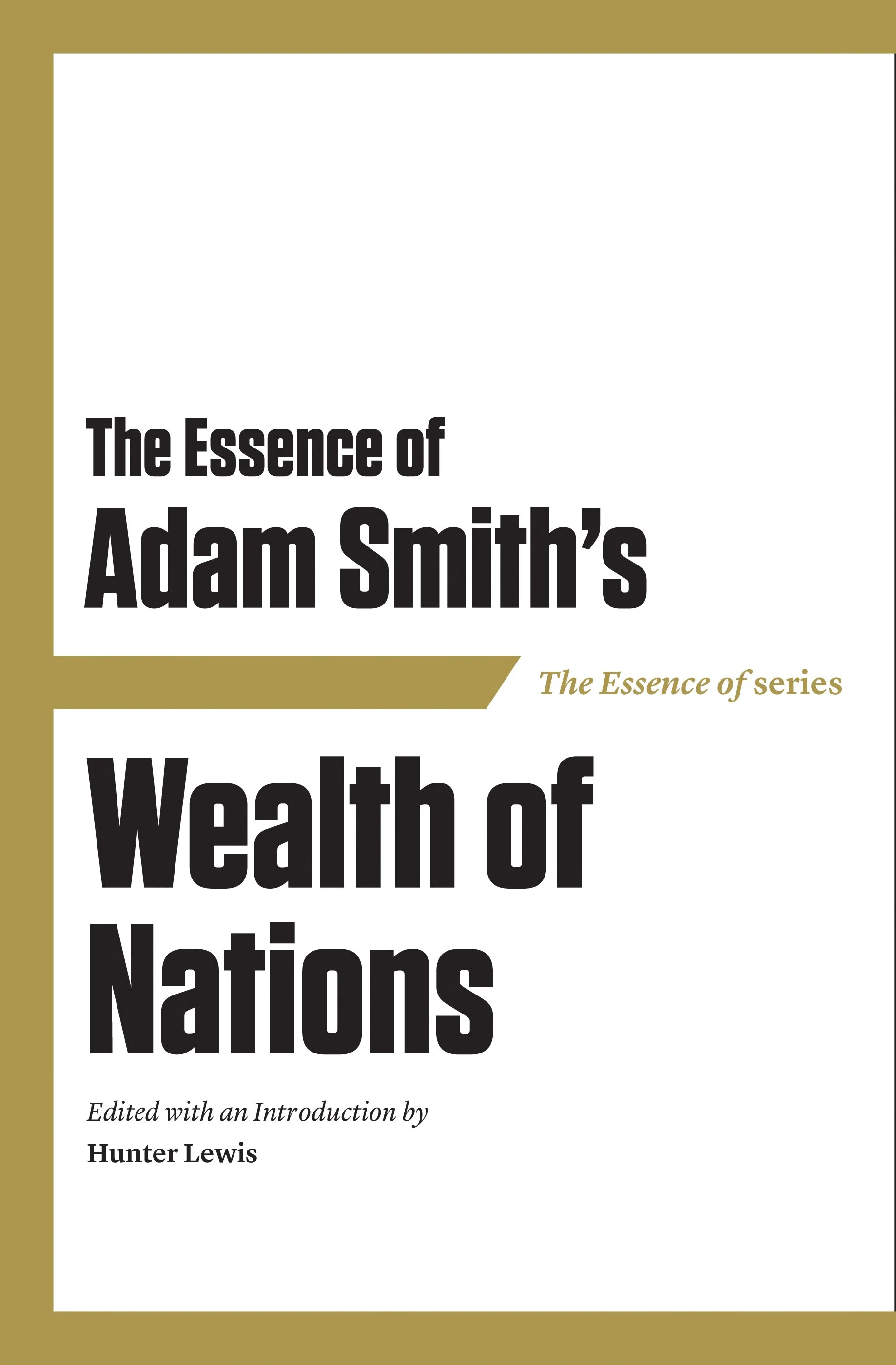The Essence of David Hume on Religion, Morals, and Economics
The Essence of series
Edited by Henry Lewis and Hunter Lewis
Introduction by Hunter Lewis
ISBN: 978-1-60419-090-8
eISBN: 978-1-60419-090-5
An introduction to David Hume and his moral and economic philosophies. Hume was renowned for his skeptical stance toward Christianity and emphasis on reason and experience, and profoundly shaped both philosophy and economics.
Available From:
Overview
David Hume is best known for his opposition to Christianity. He said about Christianity: “Upon the whole, we may conclude, that the Christian religion not only was at first attended with miracles, but even at this day cannot be believed by any reasonable person without one.”
In his moral philosophy, Hume was famous for his skepticism, but was not skeptical about everything. He valued logic, and put special emphasis on experience as our best teacher.
As an economist, Hume demonstrated why free trade was best for all nations and why policy should help the poor and middle class, not just the rich. Despite his strong opinions, observers of Hume in his own day were struck by how serene, friendly, and cheerful he was.
—
Axios Press’s Essence of . . . series takes the greatest works ever written in the field of practical philosophy and pares them down to their essence. We select the best passages—the ones that are immediately relevant to us today, full of timeless wisdom and advice about the world and how best to live our lives—and leave behind the more obscure or less important bits. Our selections are not isolated: they flow together to create a seamless work that will capture your interest and attention from page one. And we provide useful notes and a solid introduction to the work.
-
Part One: Religion
Introduction
An Enquiry Concerning Human Understanding (1748)
Section I, 6
Section X: Of Miracles
An Enquiry Concerning the Principles of Morals (1751)
Section IX: Conclusion
Selected Essays (1742)
Of Suicide
Of Superstition and Enthusiasm
Of National Characters
Of the Parties of Great Britain
On the Standard of Taste
On the Immortality of the Soul
The Natural History of Religion (1757)
Dialogues Concerning Natural Religion (1779)
Part Two: Morals
Introduction
An Enquiry Concerning Human Understanding(1748)
Section I: Of the Different Species of Philosophy
Section II: Of . . . Skeptical Philosophy
A Treatise of Human Nature (1738)
Introduction
Book III: Of Morals
An Enquiry Concerning the Principles of Morals (1751)
Section I: Of the General Principles of Morals
Section II: Of Benevolence
Section III: Of Justice
Section IV: Of Political Society
Section V: Why Utility Pleases
Section VI: Of Qualities Useful to Ourselves
Section VII: Of Qualities Immediately Agreeable to Ourselves
Section VIII: Of Qualities Immediately Agreeable to Others
Section IX: Conclusion
Appendix I: Concerning Moral Sentiment
Appendix II: Of Self-Love
Selected Essays (1742)
The Skeptic
Of the Standard of Taste
Of Refinement in the Arts
Of the Original Contract
Of the Delicacy of Taste and Passion
Of the Dignity or Meanness of Human Nature
The Epicurean
The Stoic
The Platonist
Part Three: Economics
Brief Introduction: What David Hume Has to Teach Us Today
Introduction
I: Of Money
II: Of Interest
III: Of Interest, Continued: How Commerce Increases Savings, Lowers Profits, and Lowers Interest, without Ever Requiring the Creation of Additional Money
IV: Of the Jealousy of Trade
V: Of the Balance of Trade
VI: Of Commerce
VII: Of Public Credit
VIII: Of Taxes
IX: Of the Populousness of Ancient Nations (Slavery in the Ancient World)
X: Of Government
That Politics May Be Reduced to a Science
Of the Origin of Government
Of Civil Liberty
Of the Rise and Progress of the Arts and Sciences
Of Some Remarkable Customs
Of the Protestant Succession (On Political Tactics)
Part Four: Life
A Treatise of Human Nature (1738)
The Life of David Hume, Esq (Written by Himself)
Letter from Adam Smith, LLD to William Strahan, Esq.
Index
-
ISBN-13: 9781604190908
Publication date: 11/07/2014
Pages: 405
Product dimensions: 5.20(w) x 7.90(h) x 1.00(d)
-
Selections from Parts One, Two, and Three
Uncut Text: Read the complete public domain versions showing deletions and additions:
Related Reading
About the Author
David Hume
David Hume (1711–1776) is ranked as one of the greatest Western philosophers and economists.
About the Editors
Henry Lewis
Henry Lewis is the Co-Founder of Sudoc, a sustainable chemistry company, as well as the President CEO of CA Company, a single family office. He oversees global investments operations with a special focus on venture, private equity, and emerging markets. He is vice-chair of the Bhutan Foundation.
Hunter Lewis
Hunter Lewis, co-founder of global investment firm Cambridge Associates, has written eleven books on economics and moral philosophy. He has served on boards and committees of fifteen leading not-for-profit organizations, including environmental, teaching, research, and cultural organizations.








